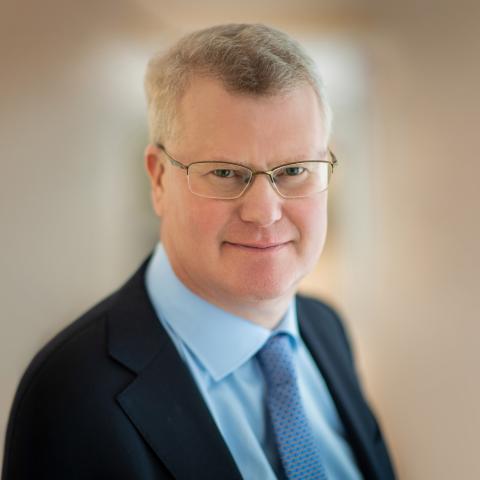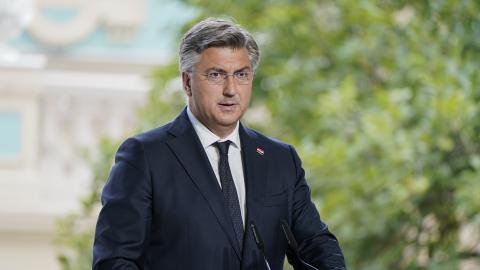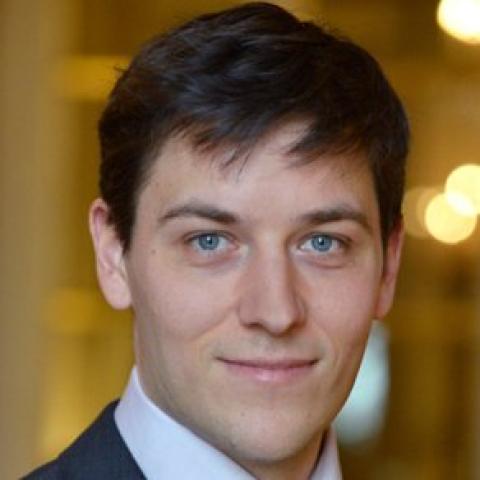p(firstLetter). It is tempting to categorize next week’s visit by French President Emmanuel Macron to the United States as a meeting of opposites: Macron the “globalist” supporting free trade and the European Union versus U.S. President Donald Trump, the nationalist and populist. And it’s clear their discussions will include tough issues over which they disagree, from the fate of the Iran nuclear agreement to the fight against climate change, all against a background of looming trade wars. But the reality of the two presidents’ close relationship has been misinterpreted — mostly because Macron himself has been misunderstood.
Despite their radically different platforms at home, both presidents see themselves as insurgent outsiders who have rewritten existing political rules, landed unexpected victories despite pundits’ predictions, and shaken the old political establishment. But their similarities aren’t simply a matter of style. Macron has never been the knee-jerk postmodern “globalist” many accuse him of being. Instead, both in domestic and foreign policy, he has systematically tried to channel populist appeals for protection back into a liberal framework, while never letting anyone outbid him in claims to patriotism.
Observers have often characterized Macron as the French heir to the Clinton-Blair “third way” of governing that split the difference between the existing left and right. In fact, he is attempting to transcend that difference by charting a third way between the nationalist temptation and the globalist creed. The French president is keenly aware that the overarching task of his mandate — the outcome of which will determine his success or failure — will be to restore trust in liberal democracy by reforming not just the EU, but globalization as a whole.
For Macron, there’s more at stake in this project than just the fate of France. “The great compromise of modern times” dating back to the 18th century is being attacked, he argues This delicate balance depends on a successful market economy benefiting all, a stable and thriving middle class, and support for individual freedoms, democracy, and the rule of law. That compromise is being threatened by economic imbalances and a “nationalist fascination” offering delusional solutions for them. Macron proposes instead to address the root causes — a “crisis of globalization” that has been allowed to morph into lawless competition, to the detriment of the middle class.
This belief was also at the core of the president’s speech on European reform at the Sorbonne in September 2017. Unveiling a series of proposals from eurozone integration to common defense initiatives, Macron made the case that the EU should and could appropriate populist successful themes without retreating into nationalism. In another speech, in Athens, he summed up his vision for the EU in a plea for “European sovereignty” — a contradiction in terms and an illustration of his attempt to overcome tensions between national sovereignty and European integration.
Macron’s way of addressing root problems includes tackling divisive issues long ignored by liberals: above all, trade and immigration. If populist fears have been fueled by the perception that borders are left unchecked, Macron’s government wants to demonstrate that the current movement of goods and peoples follows the rule of law — precisely to avoid a more dramatic backlash in the form of walls and tariffs. Macron has thus taken a tough line on migration, pushing for measures to accelerate the deportation of immigrants living in France illegally. A bill promoted by his government intends to make sure that asylum-seekers who have been turned down are effectively sent back, instead of lingering illegally.
While praising German Chancellor Angela Merkel’s refugee policy, Macron has also called for increased investments in European border control. And in commenting on the result of the Italian elections that saw the victory of the Five Star Movement and the Lega party, the French president left no doubt that he saw immigration as one of the primary reasons behind the populist wave sweeping across Europe. His conclusion: To avoid more destructive nationalist backlashes, liberals must get serious about dealing with the surge of migrants and refugees coming to Europe, which fuels anxieties in much of the population.
On trade, Macron has always clearly rejected protectionism. He has officially backed the opening of new trade negotiations between the EU and the South American trade bloc Mercosur, and he has joined other Europeans in criticizing Trump’s tariffs. And yet, he has also said that he wants free trade to be “fair” and that the EU should be more “protective” and less naive in its approach to international trade, particularly when it comes to China. Macron believes that support for free trade is contingent on the perception that the border is not being left open for unfair practices and competition. Here again, to avoid a protectionist backlash, free-traders should acknowledge the need for better-regulated international trade, on a multilateral basis.
Looking ahead, the French president sees the need to address future disruptions brought about by the global economy if liberal democracies are to avoid even more serious fractures. The rise of new technologies will bring even more disruption to the job market and the broader economy. For Macron, this kind of creative destruction is desirable. But its negative effects must be taken care of if we don’t want, in his words, Schumpeter to become Darwin — that is, if we don’t want economic transformation to lead to a destruction of the social fabric of our democracies.
In France, Macron is trying to facilitate the growth of a startup economy by scrapping regulations for small businesses. At the same time, his administration is currently leading the charge within the EU to develop both its digital single market and its own set of regulations for that sector. In a long interview with Wired, he praises artificial intelligence’s contribution to the health sector but adds that unregulated implementation could “jeopardize democracy.” Here again, he describes a third European way between America’s unbridled private development and China, where players “collect a lot of data driven by a government whose principles and values are not ours.” Against these competitors, Macron’s objective is “to recreate a European sovereignty in AI”: a mix of international competitiveness and political oversight.
The need to account for the downsides of a global economy is glaring when it comes to climate change. It is therefore only natural that Macron would make climate change and the defense of the Paris agreement his signature issue. It has allowed him to carve out his international stature both as a defender of a cooperative world order and as a reformer of globalism. More importantly, the Paris climate agreement is a new template for a modernized multilateralism that preserves national sovereignty through voluntary commitments and brings together not only states but also the private sector and civil society. Consisting of strictly voluntary individual national pledges, the agreement seems to perfectly illustrate Macron’s own vision of sovereignty and interdependence. Interestingly, Macron’s response to Trump’s withdrawal from the Paris deal has been to appeal directly to U.S. governors, mayors, and corporations.

















